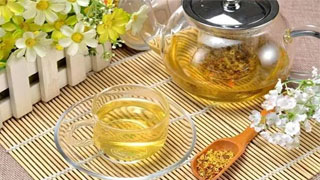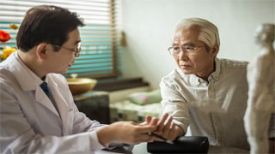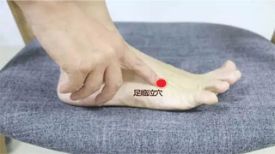
When treating a great illness, one must be calm and determined, without any desires or demands. First, one should have a great compassion and vow to save all those who suffer from spiritual distress. If someone seeks help from illness or distress, one should not ask about their wealth or status, whether they are young or old, whether they are friends or wealthy, whether they are ignorant or foolish, and whether they are all of the same kind, just like the thoughts of close relatives. One should also not hesitate and consider their own fortune or misfortune, and cherish their own life. When one sees their distress, if one already has it, one should deeply feel sad. Do not avoid danger, day and night, cold and heat, hunger and thirst, fatigue, one should go all out to save, and have no heart to work hard. This can be a great doctor for the people, but the opposite is true. Containing the spirit of a great thief. "- Sun Simiao," A Thousand Golden Formulas: The Great Physician's Sincerity "
We all know that there are three reasons why people get sick: external, internal, and neither internal nor external. External factors include wind, cold, heat, humidity, dryness, and fire; The internal reasons are the seven emotions, namely joy, anger, worry, thought, sadness, fear, and shock; The reasons for both internal and external factors are fatigue from diet and daily life.
In the process of clinical practice, I have used traditional Chinese medicine methods to treat many people's diseases. But I found a problem, these people's illnesses were solved at that time, but usually there is a root cause, which is that the problem has not been fundamentally solved. I have been thinking from various aspects to find a solution to the problem, but I have not been able to find the answer.
Later, by chance, I began to explore traditional culture, and the first book I read was' The Four Teachings of the Earth '. After reading it, I learned one thing, which is introspection.
Firstly, let me start reflecting on myself. At the beginning of treatment, I was used to seeking external help. For example, if this person could not cure his disease well, he always wanted to use what prescription, what technique of acupuncture and moxibustion, and what means to adjust the qi and blood, and the internal organs. But in vain, there will always be a problem left there.
At the same time, I read many classics of traditional Chinese medicine, as well as many works by ancient medical experts. These ancient medical works all mention that 'virtue is the foundation of medicine'. As a doctor, the most important thing is not medical skills, but medical ethics.
According to the ancient saying, it is called "advancing with illness strategy, retreating with heart strategy". What does it mean? That is to say, when treating a disease, on the one hand, it is necessary to analyze the pathogenesis of the disease in detail and formulate a treatment plan; On the other hand, it is necessary to conduct a thorough analysis of the patient's inner emotions and five aspirations to eradicate the root cause of the disease.
In the Qing Dynasty, there was a doctor named Yu Chang, who was a renowned physician of his time. His medical skills were very advanced. He wrote a book called "The Tao of Meaning Grass", and in the preface, there is a passage that reads: "Chang has no other strengths in this field, but from childhood to old age, every illness that comes with his ears, eyes, and eyes is accompanied by a calm and gentle breath. At the beginning, I became a sick body, and the negative shadow only stood... Those who do not know say that Chang obtained it from paper, but the way of life is in people. How can paper compare to paper? For example, military strategy and military aircraft cannot be obtained immediately. In the case of falsely claiming Sun Wu on paper? But let this heart be diligent first, under the spirit of the underworld, the god stands firm and stands tall
Many people say that I learned these medical skills from paper and books. Many people think that I have a wide range of knowledge and strong memory, and the treatment effect is also very good. In fact, that's not the case. What is a real doctor? It's about being able to calm down when encountering patients, deeply understand their pain, integrate oneself with patients, and use one's own heart to understand their pain, in order to find solutions to problems
The reason why I couldn't cure so many illnesses at first, and later encountered bottlenecks, why? I haven't entered the other person's heart, unable to understand the crux of their pain, unable to unlock the deepest lock of their illness. In this situation, no amount of medicine is effective.
After starting to reflect, I found a very strange phenomenon, that is, after I have figured myself out, it is particularly easy for me to figure others out. This is actually a saying from ancient times, called 'extending oneself to others'. That is to say, if we have obstacles in our own hearts, it will hinder our communication with others.
If we doctors have psychological barriers, it will hinder communication with patients, prevent us from experiencing their pain, and not know how to solve problems. If this barrier is removed, the patient's condition will be clear and they will naturally know how to help them solve their illness.
After realizing these, I started practicing in clinical practice. I have found that a person's illness is closely related to their psychological state, and there are internal rules. Many illnesses cannot be cured by medication. If the negative factors in psychology, personality, temperament, and emotions are not transformed, even the best medication cannot cure the illness.
Before we talk about this, let's first understand the concept of the "Five Elements" in traditional Chinese culture. The Five Elements are "wood, fire, earth, metal, and water", which correspond to the "liver, heart, spleen, lungs, and kidneys" of the human body. In traditional Chinese culture, there is also a concept of the Five Constants, also known as the "Five Virtues", which is "benevolence, righteousness, propriety, wisdom, and trustworthiness". The ancients called it the Five Constants.
The concept of 'benevolence, righteousness, propriety, wisdom, and trustworthiness' originally originated from Confucius' Analects, where he spoke of three words:' benevolence, righteousness, and propriety '; Later, in the work "Mencius" of the Warring States period, a concept of "wisdom" was added, which expanded to four aspects and was called the Four Dimensions; In the end, Dong Zhongshu of the Han Dynasty identified the five aspects of "benevolence, righteousness, propriety, wisdom, and trustworthiness" in his book "Strategies for the Wise and Virtuous". Since the Han Dynasty, the Five Constants have been the standard for establishing a country.
What does' often 'mean? 'Chang' refers to the natural state, which is normal, natural and harmonious. In traditional Chinese medicine, the Five Constants corresponding to the Five Organs are the normal emotional state of the Five Organs. That is to say, "liver, lungs, heart, kidneys, and spleen" correspond to "benevolence, righteousness, propriety, wisdom, and faith". If the Five Constants are abnormal, it can lead to diseases. On the contrary, if we can transform a person's abnormal psychological state into normal, many diseases will be cured without treatment.
In Laozi's "Tao Te Ching," there is a saying that goes, "Knowing the constant brightness of the moon, not knowing the constant, acting recklessly, and being vicious. That is to say, understanding the laws of nature is called wisdom. Without understanding the laws of nature, reckless behavior often leads to disasters. The disasters here are reflected in many aspects, the most basic of which is diseases, including many incurable diseases like cancer.
So, many diseases are created by our own inner selves. So, when it comes to treating illnesses and seeking health and longevity, we don't look for expensive health products from the outside. The scientific treatment method is to look from the inside out. First, cultivate one's mind and virtue. Once the mind is upright, the qi becomes upright, and once the qi is upright, the form becomes upright.
According to ancient Chinese medicine theory, human beings are composed of three parts. Which three parts? It's form, qi, and spirit. 'Form' refers to our external appearance; Qi "refers to the meridians, qi, and blood in our body; 'God' refers to our spirit.
In fact, modern scientific understanding also holds that life is composed of three parts: matter, energy, and information. So, material corresponds to appearance and physical body; Energy corresponds to the concept of "qi" in traditional Chinese medicine theory; The information corresponds to our God.
The understanding of Chinese and Western medicine in this regard is interconnected. So in the Yellow Emperor's Inner Canon, it is said: "Tranquility and emptiness, from which true qi comes." This is about the Tao, which is the highest goal. But how to implement this goal? We need to be calm and composed, with our internal organs at peace. How are the five organs peaceful? We need to maintain the 'Five Constants' in a normal state.
Corresponding Table of the Five Elements of Heaven and Man
The Five Elements: Wood, Fire, Earth, Metal, and Water;
Five organs: liver, heart, spleen, lungs, and kidneys;
The Five Constants: benevolence, propriety, trustworthiness, righteousness, and wisdom;
Six organs: gallbladder, small intestine, stomach, large intestine, bladder (three burners);
Five poisons: anger, hatred, resentment, annoyance, and annoyance;
Seven emotions: anger, joy, worry, sorrow, and fear;
Five injuries: prolonged walking can damage tendons, prolonged visual impairment can damage blood, prolonged sitting can damage meat, prolonged lying can damage qi, and prolonged standing can damage bones;
Five gods: soul, spirit, intention, spirit, and will;
Five Zangs: Blood, Pulse, Camp, Qi, Essence;
Five body types: tendons, veins, flesh, skin, and bones;
Five orifices: eyes, tongue, mouth, nose, and ears;
Five fluids: tears, sweat, saliva, tears, and saliva;
Wuhua: Claw armor, face, lips, fur, hair and teeth;
Five sounds: cry, laugh, sing, cry, moan;
Four seasons: spring, summer, long summer, autumn, winter;
Five colors: green, red, yellow, white, and black;
Five Qi: rising, floating, transforming, descending, sinking;
Five natures: warm, hot, flat, cool, and cold;
Six types of lust: wind, fire (heat), dampness, dryness, and coldness;
Five flavors: sour, bitter, sweet, spicy, and salty;
Five tones: Jiao, Zheng, Gong, Shang, Yu;
Five stars: Nianxing, Yinghuoxing, Zhenxing, Taibai Star, Chenxing;
Five grains: wheat, millet, millet, rice, and beans;
Five dishes: leek, scallion, sunflower, scallion, and hawthorn;
Five livestock: dogs, horses, cattle, chickens, swine;
Five Insects: Hair, Feather, Lobe, Medium, Scale;
Five fruits: plum, apricot, jujube, peach, chestnut;
Heavenly Stems: A, B, C, D, E, G, N, and Gui;
Earthly Branches: Yin Mao, Si Wu, Chen Xu, Chou Wei, Shen You, Hai Zi;
Five directions: East, South, Central, West, North;
Five sided beasts: Qinglong, Zhuque, Qilin, Baihu, Xuanwu;
Bagua: Zhen, Xun, Li, Gen, Kun, Qian, Dui, Kan.
Confucius said in the Analects of Confucius, "Benevolence leads to longevity, and great virtue leads to longevity." This means that if a person has high moral character, the qi of the five organs will be peaceful and their lifespan will be very long.
Have we traditional Chinese medicine practitioners said such things? have Sun Simiao, the Medicine King of the Tang Dynasty, said in his "Qian Jin Fang": "With a hundred lines of preparation, even without medicine and bait, it is enough to last for years. If one's character is not good, even if they take jade liquid and gold pills, they cannot prolong their life
'Baixing' refers to various good virtues. The meaning is that good virtues are possessed, even without taking longevity and health supplements, one can still enjoy the benefits of longevity and achieve the goal of good health and longevity; On the other hand, if a person's moral character is not good, even taking the Jade Liquid Golden Pill cannot prolong their life. Yuye Jindan refers to medicines for longevity and health care, including current health products.
Gong Tingxian of the Ming Dynasty was very famous in the entire medical community at that time, known as the "top scholar in the medical field". He also said similar things, saying, "Accumulating good deeds and achievements, maintaining Yin virtue, can prolong one's life." That is to say, a person who often does good deeds, doing some unknown good deeds, can prolong life.
Disclaimer: This article is a sharing of health knowledge. The drugs, prescriptions, acupuncture and moxibustion and other treatment and health preserving methods mentioned in this article should be applied under the guidance of professional doctors, and should not be applied by yourself. We are not responsible for any issues arising from improper use.


